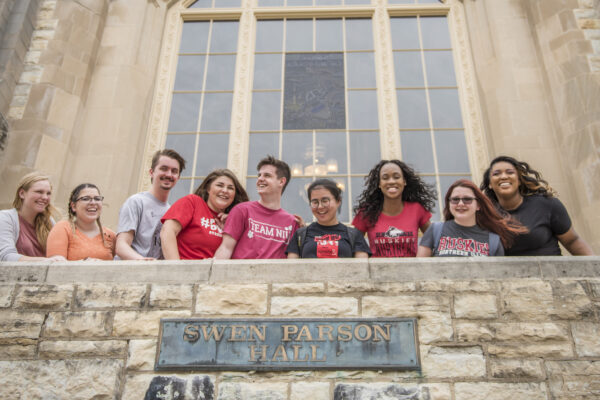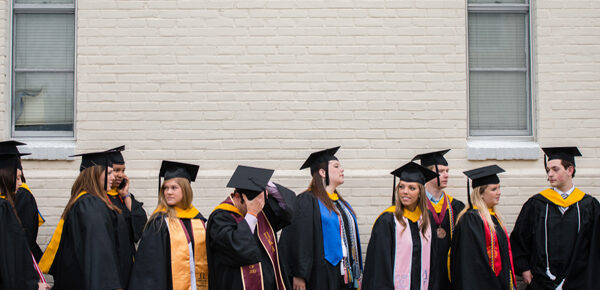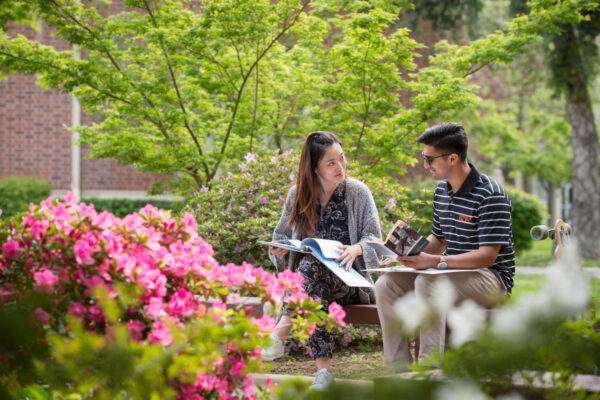Beth Stroble, president of Webster University in Missouri, explores the possibilities for colleges and universities under the United States’ new relationship with Cuba.
As I arrived in 2009 as Webster University’s 11th president, I welcomed the opportunity to join a university community that, from our inception in 1915, opened previously closed worlds to students.
The founding Sisters of Loretto created one of the first colleges west of the Mississippi to offer women bachelor’s degrees, preparing them for careers and lives of service. Over our 100-year history, Webster transitioned from our Catholic origins to lay governance and independence from religious affiliation, welcomed men and women, and took education to students on military installations, U. S. metropolitan and corporate locations, and American-style residential campuses in Europe, Asia, and Africa.
Our global character is evidenced through our academic programs, policies, and locations as well as the global diversity of our faculty, staff, and students. Thanks to ACE’s Internationalization Laboratory, we continue to embrace a more comprehensive internationalization.
What worlds will we together now open for Webster students? The answer lies, at least in part, in President Obama’s move to restore full diplomacy with Cuba, a historic decision that is ending over 50 years of frozen relations.
The breakthrough came last December after Cuba agreed to release American prisoner Alan Gross and has moved forward quickly this year with the removal of Cuba from the American government’s list of nations that sponsor terrorism, among other steps that will increase the flow of travel and commerce. Missouri’s own Sen. Claire McCaskill is one of the primary movers behind these new economic ties, signing on as a co-sponsor of the Freedom to Export to Cuba Act after traveling to the island nation in March.
These developments are the culmination of a steady march toward loosening U.S.-Cuba relations that began shortly after Obama took office with the slow easing of travel restrictions.
Higher education was one of the main beneficiaries of these early efforts: In 2011, the president issued a directive reversing a series of rules imposed by the Bush administration that eliminated the ability of most U.S. colleges and universities to run exchange programs in Cuba.
Under the Bush rules, study abroad programs in Cuba were limited to those lasting at least 10 weeks, university-led programs were required to be run by full-time faculty members, and universities with Cuba programs were restricted from enrolling students from institutions other than their own. The impact was immediate: The number of U.S. students studying in Cuba fell from 2,148 in 2003-04 to 251 in 2008-09, according to data from NAFSA: Association of International Educators and the Association of International Education Administrators.
Those numbers are now starting to rebound. And study abroad is just the beginning. Colleges and universities—including Webster—have been pursuing a full range of academic partnerships that only promises to expand under the new diplomatic relations.
Truly significant and substantive academic partnerships often begin with longstanding relationships between individuals. In July 2011, Webster hosted Raúl Rodríguez, then professor for the Study of the State at the University of Havana, who spoke about “Change in Cuba: The View from Havana.”
Cosponsored by the World Affairs Council, which we house on our downtown St. Louis campus, and the Council on Foreign Relations, this lecture took advantage of Professor Rodríguez’s experience in teaching courses to undergraduates from other U. S. institutions who had visited Cuba since 2004 on semester programs at the University of Havana.
Webster Professor Daniel Hellinger of the Department of History, Politics and International Relations, an expert on Latin American affairs, first met Professor Rodriquez on a trip to Cuba nearly two decades before. It was then natural for the first official result from an MOU signed by Webster and the University of Havana in 2013 to be a visiting professorship by Professor Rodríguez to Webster St. Louis.
Rodríguez, now deputy director of the University of Havana’s Center for the Study of Hemispheric Relations and the United States, taught an undergraduate and graduate class, and also conducted one session of the Foreign Policy Associations’ Great Decisions program sponsored by our Alumni Association for the broader community.
From those beginnings the Webster-Cuban interactions have increased significantly in number and type. A short list includes:
• Fidel Corrales Jimenez, grandmaster from Cuba, is a member of Webster’s globally diverse, three-time national championship chess team.
• Members of the Cuban hip-hop duo Obsesión, Magia Lopez and Alexey Rodriguez, spoke as part of an artist lecture and forum on hip-hop and Afro-Cuban culture, performing for Webster audiences.
• Olga Rosa González Martín from the University of Havana was a 2013 visiting film scholar, teaching, “Topics in Film Studies: Cuban Film and Media Today.”
• International Relations faculty in London hosted Cuba’s ambassador to the United Kingdom for an International Seminar Series.
• The 2014 Susan Polgar Invitational Chess Tournament for Girls included 56 participants from across the United States and Puerto Rico, as well as Cuba, Costa Rica, Brazil, Mexico and Canada.
As we seek to enhance these academic partnerships and relationships in ways that are transformative in educating ourselves and our students as global citizens, I am most encouraged by three activities in 2015: the chance to host two Cuban theatre artists as Global Leaders in Residence, the invitation for Webster’s Conservatory of Theatre Arts to bring one of its productions to the Havana International Theatre Festival in October, and the opportunity for Webster students in the Global M. A. in International Studies program to study in Havana.
The Global Leaders in Residence program extends Webster University’s commitment to partnerships around the world. Provost Julian Schuster and I launched the program to enable each college to host distinguished scholars from across a wide spectrum of disciplines. While in residence, Global Leaders share their unique perspectives based upon their experiences in forums that are free and open to all students, faculty and the general public.
 How fitting then that Flora Lauten and Raquel Carrio (pictured left), Cuba’s most esteemed theater duo, brought their knowledge of directing and playwriting to St. Louis. The co-founders of the Cuban theater company Teatro Buendia spent five intense weeks at on our campus leading workshops and hosting public discussions. They taught a four-week course, gave keynote addresses, interacted with media and members of the broader St. Louis community, and indeed opened their world to us in ways that deepened our knowledge of their art and of Cuba.
How fitting then that Flora Lauten and Raquel Carrio (pictured left), Cuba’s most esteemed theater duo, brought their knowledge of directing and playwriting to St. Louis. The co-founders of the Cuban theater company Teatro Buendia spent five intense weeks at on our campus leading workshops and hosting public discussions. They taught a four-week course, gave keynote addresses, interacted with media and members of the broader St. Louis community, and indeed opened their world to us in ways that deepened our knowledge of their art and of Cuba.
Lauten and Carrio’s adaptations of classic works cross boundaries of culture and geography by combining elements of Afro-Caribbean mythology with vibrant music and dance. While in St. Louis, they joined Conservatory students and audiences in a discussion of Big Love, a contemporary adaption of Aeschylus’ The Suppliant Women. These students now have the rare opportunity to take their show to Havana this fall.
As we conclude this academic year’s activities in a partnership many years in the making, six of Webster’s students in the Global M. A. in International Relations program have been immersed with Professor Hellinger in studies and life in Cuba—returning just yesterday, May 10. It is this kind of mutually beneficial partnership connecting our complementary cultures that holds the greatest promise for opening our worlds.
For further reading:
Easier Path to Cuba
Inside Higher Ed (Dec. 18, 2014)
OPINION: A New Era? The Outlook for U.S.-Cuba Academic Relations
Lisandro Perez in The Chronicle of Higher Education (March 31, 2015)
Cuba Policy: Restoring Academic Travel and Diplomatic Relations
NAFSA
How Education Shaped Communist Cuba
The Atlantic (Feb. 26, 2015)
If you have any questions or comments about this blog post, please contact us.


